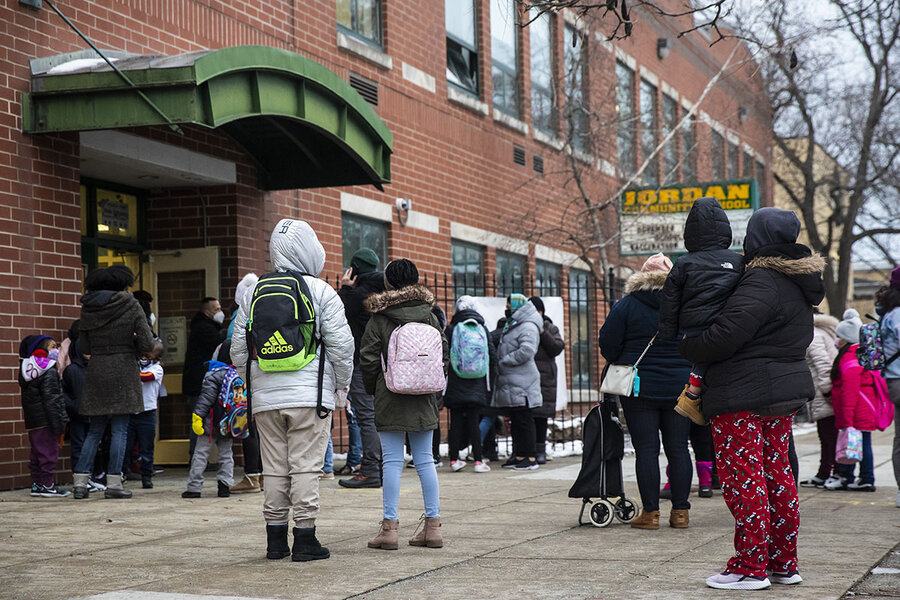School choice and race: How the debate affects parents – and communities
Loading...
The story of an anti-school choice Chicago Teachers Union president who sent her son to private school understandably generated political backlash. As a parent who sees the viability of both public and private schools, Stacy Davis Gates’ decision made me think about the past and the present.
The first time I stepped into a schoolhouse, it was in preschool at the Minnie Palmore House, a private institution established by one of South Carolina’s great Black educators. A short time later, in kindergarten, I attended Clara E. Jenkins Elementary, located in the Hyde Park neighborhood of Augusta, Georgia. Hyde Park, which shares the name of a well-known neighborhood in Chicago, was later found to be in a toxic hotbed.
My early childhood experiences in education were relative to my parents’ availability, which is why I largely ended up alongside my mother in public school from first grade until I graduated high school. Conversations about “school choice” end up pitting public schools against private institutions, but I find that parents don’t care about those logistics nearly as much as they just want the best educational opportunities for their children.
Ideally, public and private classrooms should represent a frontier for equality, explains Patricia Lynch, who retired in the past decade as an educator in Chicago Public Schools after a 31-year career.
“Personally, I like school choice. I don’t think it has to be a conflict,” Ms. Lynch says. “Public schools need to have quality programs in place in all schools to keep students from wanting to leave for a private school.”
Ms. Lynch, who not only taught in the district, but was raised and taught in Chicago’s public schools, lamented the school system’s segregated history – and present.
“Historically, Chicago public schools have been segregated and Black students haven’t received a quality education,” Ms. Lynch says. “Black students are more severely disciplined and suspended from school at a higher rate than their white peers. Even with the opening of selective enrollment schools, these schools are in wealthier white neighborhoods. ... Poor black students are left in their neighborhood schools with less funding and resources.”
Chicago’s history of disparities is well documented, including an 1863 city ordinance requiring Black and white students to attend separate schools and more recently a significant amount of displacement among Black students when 50 city schools were closed a decade ago. Of the schools shuttered in 2013, according to an article from South Side Weekly, “forty-two had a population that was greater than 75 percent Black, and 88 percent of the students affected by the school closures were Black.”
When we pit public schools versus private schools and other alternative education options, the reality is that separate is not equal, and further, separation as it relates to education in this country has always meant unequal. The beginning of unity is a mutual understanding that we should provide opportunities for families whose ambitions may not fit what their neighborhood school has to offer, but we should similarly ensure that such options come about after exploring and emphasizing the richness of our public schools.
I choose to send my children to private school, with the understanding that taxpayers can and should fully fund public education. I send my children to a Christian school as a matter of preference, but opportunities for exemplary education should be available to all. When my children interact with their public school peers, my hope remains that all of them are on the fast track to successful lives.
When it comes to race, as well as how we treat the poor in comparison to the rich, such unity is not just a choice we should make in our schools. It’s a decision we must make in this country as a whole.






